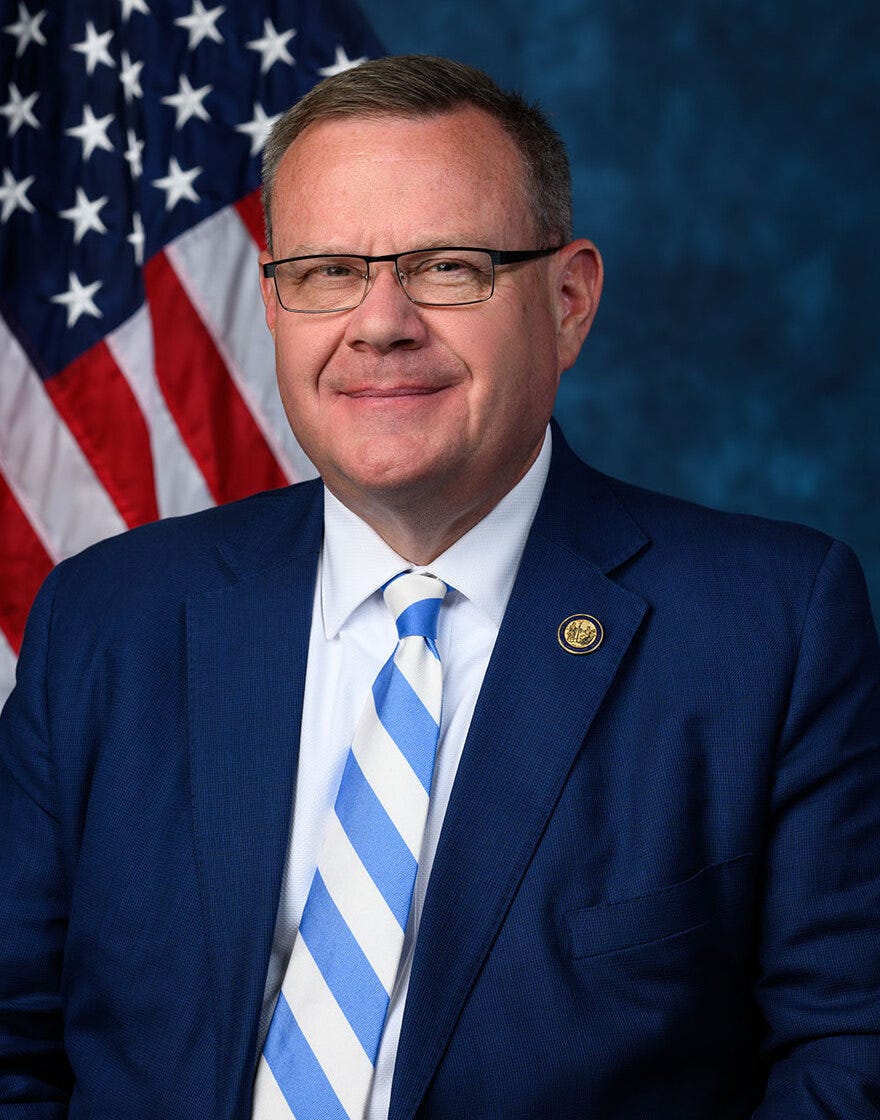That time a lawmaker blew through a federal deadline for disclosing hundreds of thousands of dollars worth of personal stock purchases made around Trump's 'Liberation Day' tariff declaration
A tale about a North Carolina congressman who bought, bought, bought — then sold
Say you’re a member of Congress.
And say you buy a whole bunch of stock — hundreds and hundreds of thousands of dollars worth of it — in the days immediately after President Donald Trump declares his “Liberation Day” tariffs on April, when share prices had tanked.
And then say you sell that stock soon afterword, scoring yourself a nice profit.
Finally, say you don’t publicly disclose any of this until well after a federal deadline for doing so, in violation of the Stop Trading on Congressional Knowledge Act.
This is no hypothetical. It’s the story of Rep. Tim Moore (R-N.C.), which I broke this week in Fortune.
From my article:
Moore — a freshman lawmaker who serves as vice chairman of the U.S. House’s Financial Services Subcommittee on Oversight and Investigations — disclosed making six separate purchases of American Airlines Group stock from April 1 through April 22, together worth between $90,000 and $300,000, congressional financial records indicate. (Lawmakers are only legally required to disclose the values of their personal stock trades in broad ranges.)
Then, on May 2, Moore sold American Airlines shares worth between $250,000 and $500,000 while indicating in a congressional financial document that he earned an undisclosed amount of capital gains from the transaction. American Airlines Group stock price trended upward during the time Moore bought and sold his shares.
Similarly, Moore disclosed making four purchases of Ford Motor Company stock from April 7 to April 10 together worth between $95,000 and $250,000.
He then sold shares of Ford stock valued at between $100,000 and $250,000 on April 15, again indicating in a federal document that he earned an unspecified amount of capital gains. Ford shares increased in value in the days between Moore’s purchases and sale.
On April 4, Moore purchased between $15,000 and $50,000 in Harley-Davidson stock. He bought more shares, also valued between $15,000 and $50,000, on May 1.
On May 14, he disclosed selling between $50,000 and $100,000 in Harley-Davidson stock, again noting he earned capital gains from the sale.
As I wrote later in the piece:
Moore is not alone in making notable numbers of stock trades in the days before or after Trump’s April 2 tariff declaration: Reps. Byron Donalds (R-Fla.), Marjorie Taylor Greene(R-Ga.), Julie Johnson (D-Texas), Jared Moskowitz (D-Fla.), Dan Newhouse (R-Wash.), and Jefferson Shreve (R-Ind.) are among others.
As for Moore, he wasn’t in a particularly chatty mood about the ordeal:
Moore’s congressional office acknowledged a phone call and email from Fortune seeking comment but did not immediately respond to questions. Following publication of this story, Moore emailed Fortune a statement about the “technical delays” of his stock disclosures.
“These trades were disclosed within the 30-day grace period for technical delays recognized by the House Ethics Committee,” Moore wrote. “They were submitted in good faith and in accordance with the STOCK Act — no late fee was assessed, nor was one required.”
He did not otherwise address questions about the trades themselves, their timing, or why they were disclosed after the federal deadline.




Great scoop!
I hate it when we see a mix of R’s and D’s on the list of the shifty sleazeballs taking advantage of opportunities like this to make money. Whatever happened to people in elected office avoiding all appearances of impropriety? I guess that is an outdated remnant of times when ethics counted for something.